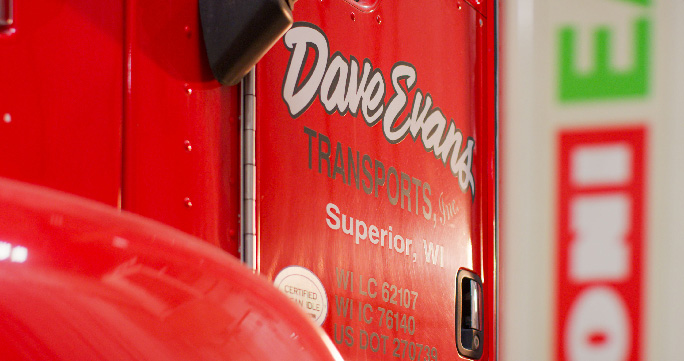You’re Approved, Now What?
What Happens After You’ve Completed the Loan Process
Discover what happens after you’re approved for a business loan, what steps you’ll need to take to close, and how funding, payments, and annual loan maintenance work.

Congratulations! You’ve studied your options, prepared all the required information and documents, had great conversations with your lender and completed your application. You just got the news you and your business have been waiting for: You’ve been approved for your new commercial loan!
Great! … Now what?
Prepare for Closing
Closing is the process of signing the final loan documents and funding the loan. This usually occurs after the lender has approved the loan and the borrower has met all the underwriting criteria.
You will work closely with your banker to prepare for your loan closing. The steps taken to prepare for closing and the items required to close your loan are going to vary depending on the type of loan you are taking out. The down payment on your loan will be collected at the time of closing. You will work with your banker to determine the best way to provide your down payment.
Loans Secured by Real Estate
If you are taking out a loan secured by real estate, a property valuation, title work, flood determination, and an environmental search will be required. It is important to note that these items are at the expense of the borrower. In addition, you will need to provide a copy of the purchase agreement, if applicable. A purchase agreement is a contract between a buyer and seller that details the sales price and terms of the sale. For loans secured by real estate, you do have the option of escrowing for taxes and insurance, however, it is not a requirement of a business loan. Escrow means you pay it with your monthly payments and the bank puts that money aside to make your insurance and property tax payments when they’re due. The benefit of escrow is not having to make a lump sum payment and being able to break it down into 12 monthly payments.
Loans Secured by Collateral
For loans secured by collateral, you will be required to obtain insurance on the collateral. You will need to work with an insurance agent that will help you determine the best type of insurance coverage for your situation. NBC will then need to be listed as the mortgagee and/or payee on the collateral and proof of insurance coverage will need to be provided prior to signing the loan documents.
Getting Your Funds
Once you’ve completed the appropriate steps for closing and provided your banker with any information they require to close, a closing date will be scheduled. After signing the loan documents, you will typically get your funds the same day.
How you get your money varies depending on the type of loan. If it is a real estate loan, the funds are typically issued to the title company to distribute. If it is a loan to purchase equipment or a vehicle, a cashier’s check will typically be issued to the seller. Other options for receiving your funds include having money directly deposited or wired into an account. You will work with your banker to determine the best fit for your scenario.
Payments
Now that you have your loan, how do payments work?
For term loans, principal and interest are due in regular payments, typically monthly. A principal payment is a payment that goes toward the repayment of the original amount of money borrowed on the loan. Interest is the fee you pay to borrow the funds.
For line of credit loans, interest-only payments are required on the outstanding principal balance. The outstanding principal balance is the amount of money that you have borrowed against the line of credit.
For construction loans, the payment structure is typically set up as interest-only payments during the construction phase, then converted to principal and interest payments for a set period.
For all types of loans, you have a few different options for making payments.
- You can elect to have the payments set up to automatically withdraw from either your NBC account or an account at a different financial institution.
- You can choose to receive monthly statements for your loan so that you can manually make the payment via check, cash, or transfer from another account.
Annual Maintenance of a Business Loan
Depending on the type and size of your loan, you may be required to provide annual financial statements for the borrower and guarantor(s). A borrower is the individual/business that takes out a loan. A guarantor is someone added to the loan who, in the event the borrower is unable to make payments on the loan, would step in to make the payments. The guarantor(s) is/are typically the owner(s) of the business.
In addition, you may be required to provide interim financial statements such as a profit and loss statement, balance sheet, borrowing base certificate, etc. Information regarding these requirements will be provided by your banker and included in the business loan agreement and guarantee documents signed at loan closing. The financial information provided will be utilized to complete an annual review of your loan. This helps the bank determine the financial standing of the business.
In addition to financial statements, property taxes (if applicable) and insurance must be kept up to date.
What to do after approval?
WATCH OUR VIDEO
FAQs
You can pay your loan off early; however, you may be subject to a prepayment penalty.
After the loan is in place, there may be a situation where you would like to extend the term of your loan. At that time, you will need to work with your banker to determine if you qualify for this option.
You may want to refinance your loan to lower your payment or perhaps add on additional funds to purchase new equipment. Whatever the case may be, you may be able to refinance your business loan. You will need to contact your banker to see if this is an option.
It is quite common for commercial customers to take out additional loans. If you recently took out a new loan, it is best to wait until your existing loan has been in place for a while. This helps your banker see a pattern of payments and know that you can handle additional debt.
Loan default, as well as solutions for default, take all different shapes and forms. In any case, communication is key. If you are at a point where you feel that you may be unable to make your payment, it is important that you notify your banker as soon as possible. Your banker may be able to provide you with some different options to help you through a rough patch.
Conclusion
At NBC, we are a team of makers, not just bankers. Relationships are incredibly important to us. As such, we try to make the lending process as easy and straightforward as possible. This is a general overview of the commercial loan process after you are approved for your loan. If you have additional questions, please feel free to reach out to a commercial banker today as they will be able to help answer any questions you have based on your unique situation.
Other Articles in this Guide

How Business Loans Work
Learn what business loans are, how to apply for them, how a lender determines how much you can borrow, and how long the process may take.

Types of Business Loans
Learn the differences between term loans, lines of credit and real estate loans, as well as important insights into the other forms of lending available to your business.

Components of a Business Loan
Discover the five major components of a business loan, what each entails, and what you need to consider when applying.

Business Lending Requirements
Gain insight into the documents required for a business loan, qualifying (and disqualifying) factors, and even what to do if you’re denied.

